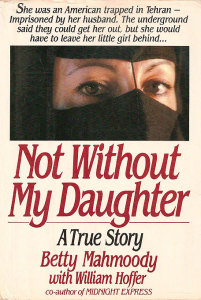In Part One of this series on Unaffiliated Jewry, we discussed money. Part Two will cover exclusion. Why would a religion that’s dependent upon membership growth—or at least retention—exclude anyone? Well, that can be complicated. These are some of the most common reasons I’ve personally witnessed:
1. Cliquishness
Many temples, especially in smaller, more rural areas don’t see new faces. Often, membership goes back for generations. This was certainly the case at my old temple. Everyone knew everyone else and whenever a newcomer arrived, they were viewed with suspicion by the “old timers.” Perfect example: an exceptionally nice couple relocated from California. The wife had worked at a Jewish pre-school for decades. When she wanted to assist my old temple’s Hebrew School, she was strongly discouraged. (Did I mention this lady was offering to help for free…) Rather than welcome her undeniable talents, some very jealous Yentas froze her out. I find this sickening.
2. Fear of Change
Because things are done a certain way in most temples, change is typically met with brutal resistance. My old temple is Reform; there’s a neighboring congregation that’s Conservative. Unbelievably, the two had never done a shared event. I was very keen on bringing the two groups together. The other Board members told me it was impossible due to funding, scheduling, differences in observance, etc. I knew in my heart the desire was there; we only lacked organization. With full approval and wonderful assistance from my Rabbi and the President of the Conservative temple, we created a joint celebration on Christmas that featured a Chinese buffet. What could be better than bringing a big bunch together on a day when most of us are normally without plans… Moral of this story: Unite, don’t divide!
3. Spite
It’s really hard for me to admit this, because it’s so hurtful, but sometimes people are excluded by the spiteful, mean-spirited behavior of those in charge. The first Board meeting I attended, we debated a request from a local Havurah. They wanted to borrow our Torah for a Bar Mitzvah in someone’s home. You would not believe the heated, often bitter conversation—accusations—that erupted! Other Board members stubbornly refused. When I pointed out that the Torah was fully insured and by being generous, we might encourage these folks into our fold, I was dismissed with laughter. Rather than making friends, I have no doubt that group was alienated forever!
4. Not “Our Crowd”
There is an infamous book called Our Crowd that documented the lives of the New York Jewish community’s most affluent members. While not all temples have members that live so luxuriously, I have found that there seems to be a homogenous element at play. Most of the members are from the same backgrounds and profess the same ideals. It can be very difficult to break into these circles. Those who want to join may be refused (similar to problem #1, cliquishness). Those who do not fit it will simply leave. Such a tragedy!
5. Non-Traditional Lifestyles
The temple model is based around the nuclear family: mother and father who are married to each other and have shared children. Mom is supposed to join the Sisterhood & Hadassah, Dad should be interested in the Brotherhood & B’nai B’rith, and the kids should be in Hebrew school from Pre-K through Confirmation and attend every Tot Shabbat.
Folks, this only happens rarely…
A surprising number of Jewish adults have never been married. More have been married and divorced multiple times. Often, their partners are Gentile, which further complicates matters. Add Step-parents and Step-children to the mix and it gets even tougher.
6. Special Needs
What about Seniors? They may have attended a temple for decades, but as Empty Nesters they no longer feel the temple accommodate their needs. I have seen good programs like trips and lunches designed strictly for Seniors, but these tend to be in metro areas. The Jewish Senior who is widowed in a rural community may be terribly alone! We need to rally around them more than ever.
Don’t forget about sick or disabled individuals. Maybe you’re hearing impaired and Services aren’t loud enough. Maybe your eyesight has gone and you can’t drive anymore—especially on winter nights, in bad weather. What if you’re the parent of an autistic child that’s too “disruptive” to attend? How about those struggling with cancer and other diseases? It’s so easy for these folks to Unaffiliate by default.
And, let us not forget the gay Jewish community. An anonymous reader left a comment in Part One stating they had been abused and excluded. That is just terribly cruel. While I am fully aware that Homosexuality is incompatible with Scripture, these issues aren’t strictly black and white. We are losing many members on the fringes.
Until temples, Federations, and other Jewish organizations learn to be truly inclusive, we will continue to see a massive exodus towards Unaffiliated Jewry. I, for one, consider this a great loss.







